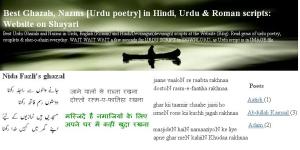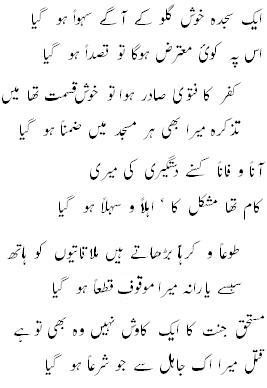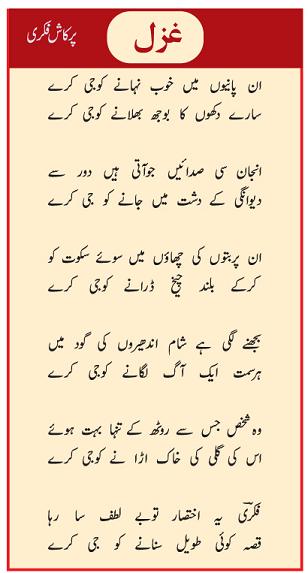 Urdu poetry transcends geographical boundaries and is understood and loved by millions who can’t read a word written in Urdu script. I am happy that my other blog now has a collection of 200 selected ghazals and Nazms, each in Urdu, Hindi and Roman English scripts, for the benefit of readers. Read.
Urdu poetry transcends geographical boundaries and is understood and loved by millions who can’t read a word written in Urdu script. I am happy that my other blog now has a collection of 200 selected ghazals and Nazms, each in Urdu, Hindi and Roman English scripts, for the benefit of readers. Read.
Due to the linguistic politics, Urdu unfortunately got identified as a language of Muslims in India, and the script of the langauge suffered as a result. However, the poetry remained as popular as it was in the past.
When you intend to put the gems of Urdu poetry on the web, you can’t ignore that a vast majority of readers can’t read Urdu script (especially Indians). While Roman script was used for writing Urdu even in Indian Army, it has certain restrictions.
Though devanagari script is quite scientific, it also has some limitations. When I started blogging I aimed at publishing the best of Urdu poetry. I soon learnt that one has to use all the three scripts as most of the readers understand Roman but are not too comfortable with the transliteration.
So I decided to write each ghazal or Nazm in English, Urdu and Hindi scripts. Roman and Hindi supplement each other. For example, if a person can’t understand a word in Roman, he can read it in devanagari and be able to pronounce it clearly.
Of course, those who can read Urdu, will have no problem. But they will also get help in pronounciation of difficult or confusing words by reading the Roman text. The result is that now there are over 200 Ghazals and Nazms which you can read at this website. Click
From classical masters like Mir, Ghalib, Momin, Dard and Dagh to progressive poets and the modernist stream, we have tried to incorporate the best verses of each generation.
Nazms are often neglected but on this site you will get to read poetry of Akhtarul Iman, Faiz, Majaz, Ibn-e-Insha, Sahir, Nida and many others. The number of posts is now well over 200 and it will keep growing.
The beauty of Urdu poetry, especially ghazal, lies in the fact that though it has at least five to six couplets, each couplet can be separately used and quoted. The quotability makes Urdu poetry unique and the ‘sher’ reverberate from pan kiosks to parliament of India.
Click to read Urdu poetry.
By Indscribe [www.anindianmuslim.com]
Filed under: Classical, Ghazal, India, Modern, Nazm, Popular, Urdu Blog, Urdu Poetry, Urdu Shayari, Urdu World: News & Views | 40 Comments »




